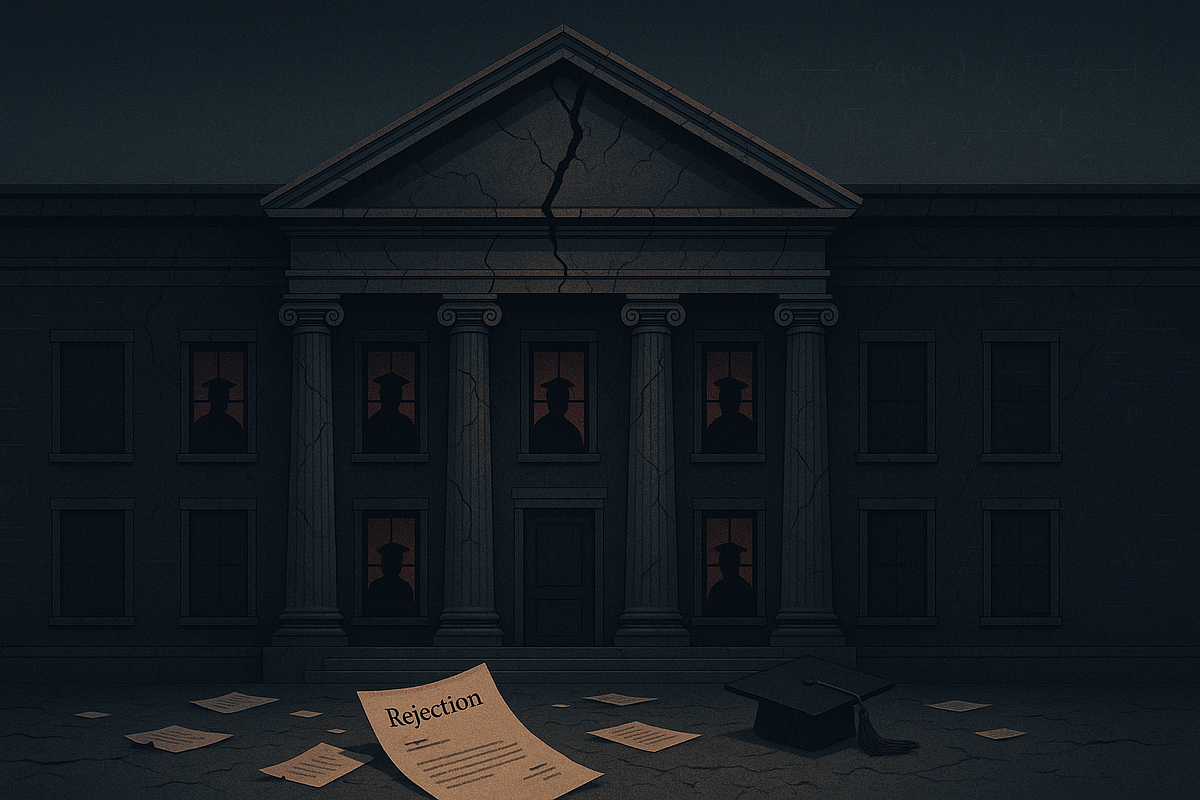
Academia Unmasked: The Dark Truths Behind Higher Education
Over the past decade, multiple systemic failures have plagued academic institutions across the U.S., U.K., and Germany. These issues range from biased peer review and “old boys’ club” hiring practices, to toxic workplace cultures that damage mental health, declining academic standards, and the loss of scientific talent. This report (Part 1 of a series) examines these problems with specific examples, data, and case studies.
Academic careers often hinge on decisions by committees — from hiring and tenure panels (“academic juries”) to anonymous peer reviewers of publications. Unfortunately, evidence shows these processes are not always fair or merit-based:
• Nepotism and Favoritism in Hiring: In some cases, personal connections trump qualifications. For example, German universities have been criticized for “institutional nepotism” in hiring. Anti-nepotism rules exist, yet hiring committees sometimes favor their own former students. In Berlin and North Rhine-Westphalia, candidates can apply to their alma mater after as little as two years away — a loophole that often leads to “in-house” candidates (ex-students of the committee members) getting the job . A report noted that despite efforts to broaden searches, “informal contacts still matter at the moment of assigning a position.” . This suggests that insiders with the right patrons have a significant edge, undermining true meritocracy. In the U.S. and U.K., while blatant nepotism is less overt, “old boys’ networks” and departmental politics can still sway tenure and promotion decisions . One high-profile case is Cathrine Veikos, who alleged that after she complained of gender discrimination in her tenure process at the University of Pennsylvania, the dean retaliated by denying her promised re-review. She eventually won a $1 million lawsuit for retaliation — a rare victory that highlights how personal and institutional politics can derail academic careers.
• Biased or Negligent Peer Review: The scholarly peer-review system is meant to be objective, but numerous examples show bias and even outright abuse. In a notorious 2015 incident dubbed “#AddMaleAuthorGate,” two female biologists submitted a paper on gender disparity in science and received a shocking reviewer comment. The (male) reviewer suggested the paper would “be better with one or two male biologists as co-authors” to check the authors’ interpretations, and implied female scientists might lack the “ego” or stamina of men . (The reviewer went on to speculate that “perhaps 99% of female scientists” choose family over careers and that men work more hours due to “better health and stamina.”) This sexist screed had nothing to do with the paper’s quality. PLOS ONE, the journal, apologized and removed the reviewer, but only after the authors publicized the egregious review . The case exposed how a reviewer’s personal biases — ideological or demographic — can unfairly torpedo research.












